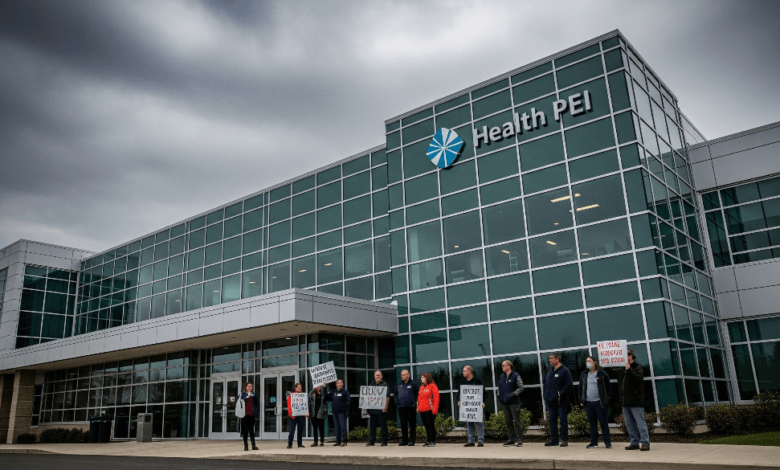Health PEI’s Executive Pay Controversy: Auditor General’s Findings Spark Public Outcry

Unveiling the Truth Behind Health PEI’s Executive Salaries, including Health PEI executive pay, and the Public’s Demand for Accountability
What Happened? A Closer Look at Health PEI’s Executive Pay Controversy
In early May 2025, the Auditor General of Prince Edward Island released a report spotlighting significant concerns about the compensation packages of Health PEI’s interim executives. The findings revealed unusually high salaries and questionable bonus structures, raising eyebrows across the province. The report, publicly accessible here, detailed how interim executives were paid more than their permanent counterparts, triggering a wave of public criticism and calls for urgent reform.
This controversy has sparked a heated debate on transparency, fiscal responsibility, and trust in public health administration, especially given the ongoing pressures on healthcare systems nationwide.
Understanding the Backdrop: What Led to This Executive Pay Issue?
Health PEI’s executive pay controversy did not emerge in isolation. The island’s healthcare system has faced financial strain, leadership turnover, and increasing public scrutiny in recent years. Interim appointments became necessary due to abrupt resignations and the need to maintain leadership continuity amid pandemic aftershocks.
However, critics argue that the premium pay awarded to interim executives — sometimes exceeding $300,000 annually — lacks justification considering budget constraints and frontline staff pay freezes. This has amplified concerns about inequity and governance lapses.
Experts from the Canadian Centre for Policy Alternatives highlight that such compensation imbalances can erode staff morale and public trust, especially when frontline workers face salary caps and increased workloads.
Expert Insights and Analysis: What Does This Mean for Health PEI and Islanders?
Healthcare policy analysts stress that executive compensation must align with organizational performance, accountability, and public service ethics. Dr. Ellen McCarthy, a healthcare economist at the University of Prince Edward Island, notes:
“While attracting skilled leadership is vital, remuneration packages must reflect fairness and transparency, particularly in public institutions funded by taxpayers.”
This pay discrepancy suggests a governance gap that could undermine confidence in Health PEI’s management. As provincial budgets tighten, unchecked executive pay could detract from resources critical for patient care and staff welfare.
The Ripple Effects: Consequences and Community Reactions
The controversy has resonated deeply with Islanders. Social media platforms and local forums have been flooded with expressions of frustration and disappointment. A community petition demanding a full review of executive pay structures has gathered thousands of signatures within days.
The emotional toll extends beyond finances; healthcare workers on the frontlines report feeling undervalued, which may impact retention and service quality. Politically, this issue risks becoming a focal point in upcoming provincial elections, pushing healthcare accountability to the forefront of public discourse.
What Comes Next? Potential Reforms and Public Accountability
The provincial government has pledged to take the Auditor General’s findings seriously. Immediate steps include:
- Conducting a comprehensive review of executive compensation policies.
- Introducing stricter transparency requirements for all public sector salaries.
- Establishing an independent oversight committee to monitor governance practices.
In the long term, reforms aim to balance fair executive remuneration with fiscal responsibility and ethical stewardship.
Citizens and advocacy groups are urged to stay engaged, attend public forums, and demand ongoing updates to ensure accountability.
Why This Story Matters
Health PEI’s executive pay controversy is not just about numbers; it’s a litmus test of public trust and responsible governance. As healthcare remains central to community wellbeing, this issue highlights the need for transparent leadership that prioritizes people over perks.
For further reading, explore:




